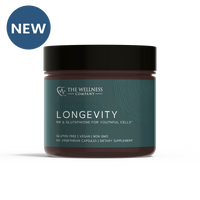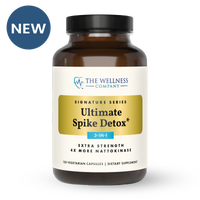The Not-So-Sweet Truth About Artificial Sweeteners

Enter the not-so-sweet world of artificial and natural sweeteners. A world of corruption, political gain, power and money. Demonized as the worst thing you could put in your body; sugar holds few health repercussions compared to the nightmare called “natural” or “artificial” sweeteners.
Did you know:
- Sweeteners labeled as “natural” don’t have to be on a product ingredient label?
- Aspartame, an artificial sweetener was banned at one time until Rumsfeld and his cronies positioned influential persons in power to get it approved. (the tangled web of how aspartame made its comeback can be found here: Rumsfeld and Aspartame
- That Aspartame is considered by the World Health Organization to be a class 2B carcinogen (causes cancer) - meaning it has the same health effects as breathing gasoline engine exhaust- but that the FDA states that doesn’t necessarily mean it causes cancer.

- Sucralose, an artificial sweetener made from table sugar, has been linked to metabolic syndrome, altering the gut microbiome, interfering with the bioavailability of therapeutic drugs for heart failure, HIV infection and organ rejection. (1)
- Artificial sweeteners, including sucralose, are regulated as food additives and are not required to undergo screening for interactions with drug-metabolizing enzymes prior to approval. (2)
- Saccharin, one of the oldest artificial sweeteners has an uncertain health profile, it is linked to obesity, diabetes, liver and renal impairment, and a possible increased risk of brain cancer. (3)
- Mannitol, a “natural” sweetener is also used as a medication to decrease pressure in the eyes, treat cystic fibrosis and lower intracranial pressure. As a medication it carries serious side effects such as electrolyte imbalance, dehydration and interferes with renal medications, to name a few.
- The artificial sweetener market in the U.S. is over half a billion dollars (577 million)
Other names for common natural and artificial sweeteners
(not an exhaustive list)
- Aspartame: NutraSweet, Equal. Sugar Twin
- Sucralose: Splenda, Equal Sucralose (most used sugar substitute blend)
- Steviol Glycosides: Extracted from the stevia plant. Truvia and PureVia, SweetLeaf, Splenda Naturals, Whole Earth, Stevita Naturals, Sun Crystals
- Saccharin: Sweet'N Low, Sweet Twin, Sugar Twin, Necta Sweet, Sweet and Low,
- Acesulfame Potassium: Often combined with other sweeteners like aspartame or sucralose to enhance sweetness and mask any bitter aftertaste (Ace-K): Sunett, Sweet One
- Sugar Alcohols: Such as, sorbitol, mannitol, polyhydric alcohols, polyalcohols
- Monk Fruit Extract: A natural sweetener derived from monk fruit; it is 100 to 250 times sweeter than sugar.
Be aware of prescription and OTC drugs
- Your prescription and over-the-counter drugs contain natural and artificial sweeteners also.
- To find out which drugs contain a specific sweetener, go to
Drugs.com and type in the sweetener. A list of drugs containing that sweetener will pop up.
- For example: Aspartame is in Dramamine for kids, chewable ibuprofen, meclizine, and many more meds.
Knowledge is Power- get educated.
-
Color system when dining out- What is in those little packets on your table?
- Pink- saccharin
- Yellow- sucralose
- Blue-contain aspartame
- Green- stevia
- Brown-raw sugar
- Yellow- sucralose
- White- table sugar
- Check out Environmental working group which has listed over 80,000 foods and ranks them according to nutrition and health concerns. Their drop-down box allows you to look up toothpaste, baby food, cosmetics, etc.
Origin Series Bee Pollen- a naturally sweet and nutritious alternative

Check out our all-natural Origin Series Beel Pollen for a nutritious, sweet alternative to artificial sweeteners. The slightly floral, sweet and nutty taste is packed full of nutrition and enzymes, not like other sweeteners that don’t have any nutritive value. Immune boosting and loaded with antioxidants, bee pollen is also known for its strong antimicrobial properties.
References
- Schiffman SS, Rother KI. Sucralose, a synthetic organochlorine sweetener: overview of biological issues. J Toxicol Environ Health B Crit Rev. 2013;16(7):399-451. doi: 10.1080/10937404.2013.842523. PMID: 24219506; PMCID: PMC3856475.
- Azeez OH, Alkass SY, Persike DS. Long-Term Saccharin Consumption and Increased Risk of Obesity, Diabetes, Hepatic Dysfunction, and Renal Impairment in Rats. Medicina (Kaunas). 2019 Oct 9;55(10):681. doi: 10.3390/medicina55100681. PMID: 31601053; PMCID: PMC6843803.
- Lee, SH., Kim, YJ. A comparative study of the effect of probiotics on cariogenic biofilm model for preventing dental caries. Arch Microbiol 196, 601–609 (2014). https://doi.org/10.1007/s00203-014-0998-7
Written by Brooke Lounsbury














